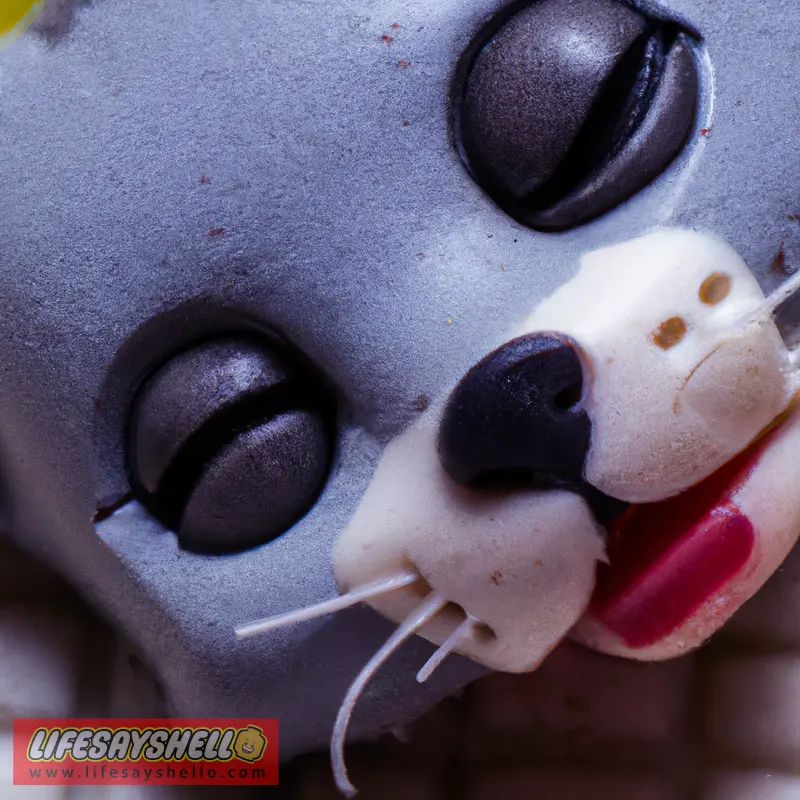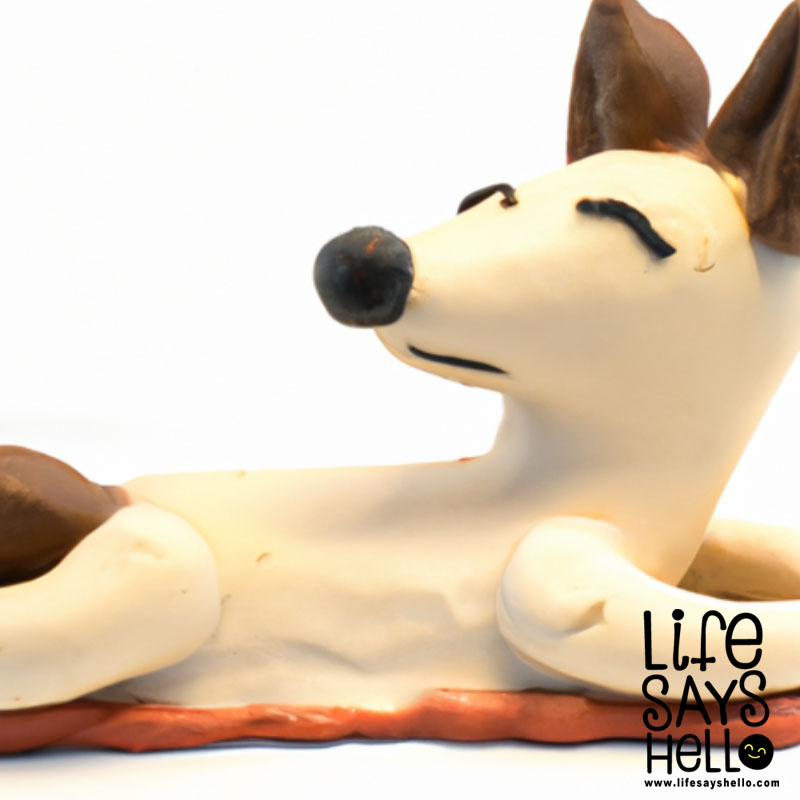Recognizing Symptoms of a Dead Kitten Inside a Cat: A Comprehensive Guide for Cat Owners

As a cat owner, it's essential to be aware of the potential complications that may arise during your feline friend's pregnancy, including the possibility of a dead kitten inside the cat. This comprehensive guide will help you recognize the symptoms and take appropriate action to ensure the health and wellbeing of your beloved pet.
Introduction
Cats are beloved companions for many people, and their pregnancies can be a fascinating and exciting time for both the cat and their owner. However, it's crucial to be aware of the potential risks and complications that can arise during this delicate period, such as the unfortunate possibility of a dead kitten inside the cat. Recognizing the symptoms of this situation is essential to ensure the health and wellbeing of the mother cat and her remaining kittens. In this comprehensive guide, we'll explore the symptoms of a dead kitten inside a cat, the potential causes, and the steps you should take if you suspect this unfortunate scenario.
Understanding Feline Pregnancy
Before delving into the symptoms of a dead kitten inside a cat, it's essential to understand the basics of feline pregnancy. A typical cat pregnancy lasts around 63 to 67 days, although it can range from 58 to 70 days. During this time, the mother cat's body undergoes several changes to support the growth and development of her kittens.
Signs of a healthy pregnancy in cats include:
- Increased appetite
- Weight gain
- Enlarged and pink nipples (known as "pinking")
- Nesting behavior
As a cat owner, it's essential to monitor your cat's health and behavior throughout her pregnancy to ensure that everything is progressing as it should.
Symptoms of a Dead Kitten Inside a Cat
If a kitten dies inside the mother cat, it can pose a risk to her health and the health of her remaining kittens. Therefore, it's crucial to recognize the symptoms of a dead kitten inside a cat. These symptoms can include:
Decreased appetite: A cat with a dead kitten inside may lose her appetite, which can be an early warning sign that something is wrong.
Vaginal discharge: A cat experiencing a dead kitten inside may have a vaginal discharge that can range in color from clear to bloody. This discharge may have a foul odor and could be a sign of infection or other complications.
Fever: A fever can indicate that the mother cat's body is fighting an infection, which could be related to a dead kitten inside her.
Lethargy: A cat with a dead kitten inside may become lethargic and less active than usual. This change in behavior can be a sign that she is not feeling well.
Abdominal pain or swelling: If a dead kitten is causing pain or inflammation in the mother cat's abdomen, she may show signs of discomfort, such as vocalizing, pacing, or avoiding touch.
Foul-smelling odor: A strong, foul odor coming from the mother cat can be a sign that there is a dead kitten inside her, especially if it's accompanied by other symptoms.
It's essential to monitor your cat's health and behavior closely during her pregnancy, as these symptoms can also be indicative of other health issues. If you notice any of these symptoms or suspect that something is wrong, consult your veterinarian immediately.
Causes of Fetal Death in Cats
There are several potential causes of a dead kitten inside a cat. Some of these include:
Infections: Bacterial or viral infections can cause fetal death in cats. These infections can be contracted by the mother cat or passed on to the kittens during pregnancy.
Trauma: Physical trauma, such as a fall or injury, can result in the death of a kitten inside the mother cat.
Genetic abnormalities: Some kittens may have genetic abnormalities that cause them to die before birth.
Nutritional deficiencies: If the mother cat is not receiving proper nutrition during her pregnancy, it can lead to the death of her kittens.
Understanding the potential causes of a dead kitten inside a cat can help you take preventative measures to ensure the health of your pregnant cat and her kittens.
What to Do if You Suspect a Dead Kitten Inside Your Cat
If you suspect that your cat has a dead kitten inside her, it's essential to take action immediately. Here are the steps you should follow:
Consult a veterinarian: If you notice any symptoms of a dead kitten inside your cat or suspect that something is wrong, contact your veterinarian right away. They can perform a thorough examination and provide guidance on the appropriate course of action.
Monitor your cat's health closely: Keep a close eye on your cat's health and behavior, noting any changes or concerning symptoms. This information can be helpful for your veterinarian in determining the best course of treatment.
Provide proper care and support: Ensure that your cat has a comfortable and safe environment, as well as access to fresh water and nutritious food. Offer her plenty of love and support during this challenging time.
Preventing Feline Pregnancy Complications
While it's not always possible to prevent complications during a cat's pregnancy, there are some steps you can take to minimize the risk:
Regular veterinary check-ups: Schedule regular check-ups with your veterinarian throughout your cat's pregnancy to monitor her health and the development of her kittens.
Proper nutrition: Make sure your pregnant cat is receiving a balanced and nutritious diet, as recommended by your veterinarian. This will help support her health and the health of her kittens.
Safe and comfortable environment: Provide your pregnant cat with a safe, comfortable, and stress-free environment to minimize the risk of complications.
Spaying and neutering: Spaying and neutering your cats can help prevent unwanted pregnancies and reduce the risk of complications associated with pregnancy.
Conclusion
Recognizing the symptoms of a dead kitten inside a cat is essential for ensuring the health and wellbeing of your beloved pet. By monitoring your cat's health and behavior during her pregnancy, consulting your veterinarian if you suspect any complications, and providing proper care and support, you can help your cat navigate this challenging time. Remember, the health of your cat and her kittens is of the utmost importance, so always seek professional advice if you have any concerns.




Comments